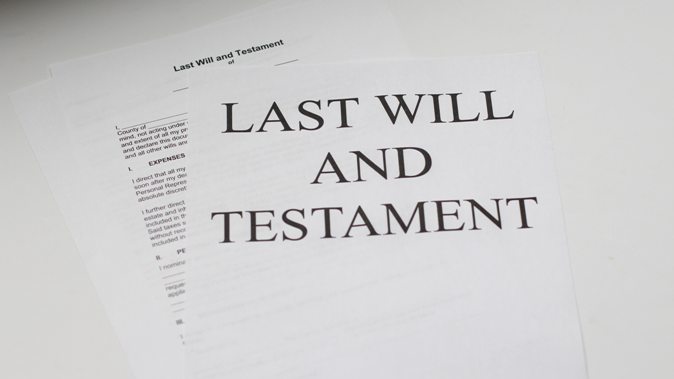Currently, fewer than half of American adults have prepared a will. But having a last will and testament is important because it ensures that your money and property will be distributed to the people you want to receive it after your death.

If you die without a will, your estate will be settled in accordance with state law. Details vary by state, but assets typically are distributed using a hierarchy of survivors. Assets go first to a spouse, then to children, then your siblings, and so on.
You also need to be aware that certain accounts take precedence over a will. If you jointly own a home or a bank account, for example, the house, and the funds in the account, will go to the joint holder, even if your will directs otherwise. Similarly, retirement accounts and life insurance policies are distributed to the beneficiaries you designate, so it is important to keep them up to date too.
Online Will Makers
If you have a simple, straightforward estate and an uncomplicated family situation, writing your own will – with the help of a good online will making program – is a viable alternative to hiring an attorney and much cheaper. Like tax software, these online tools will guide you through a series of questions and will insert your answers into a will for you, and it usually takes less than 20 minutes from start to finish.
Three top-rated do-it-yourself options include the Quicken WillMaker & Trust 2021 downloadable software (available at Nolo.com) that costs $100 and works with Windows and Macs and is valid in every state except Louisiana; LegalZoom.com, which offers basic wills for $89 or $99 if you’d like assistance from an independent attorney.
If that’s more than you’re willing to pay, consider FreeWill.com which is a completely free will making resource made possible with the support of nonprofit organizations.
When to Hire a Lawyer
If you have considerable financial assets or a complex family situation, like a blended family or child with special needs, it would be smart for you to seek professional advice. An experienced lawyer can make sure you cover all your bases, which can help avoid family confusion and squabbles after you’re gone.
The National Academy of Elder Law Attorneys and the National Association of Estate Planners & Councils websites are good resources that have directories to help you find someone in your area.
Costs will vary depending on your location and the complexity of your situation, but you can expect to pay somewhere between $200 and $1,000 to get your will made. To help you save, shop around and get price quotes from several different firms. And before you meet with an attorney, make a detailed list of your assets and accounts to help make your visit more efficient.
Make it Valid
Be aware that to make your will valid, you must sign and date it and have it witnessed according to the laws of your state. Most states require two witnesses who are not listed as beneficiaries in your will to watch you sign it. Some states also require that a notary witness the signing as well. Nationalnotary.org can tell you if a notary is needed to legalize a will in your state, if remote notary services are available, and how to access such online services to execute your will if you are sheltering at home during the pandemic.
Jim Miller publishes the Savvy Senior, a nationally syndicated column that offers advice for Boomers and Seniors.
Related Articles & Free Vermont Maturity Subscription

How to Keep a Watchful Eye on an Aging Parent
Learning How to Recognize Fake News and Propaganda






Comment here